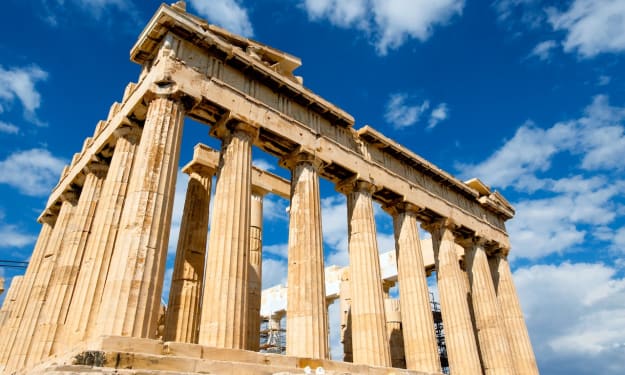The Islamic Empire
Muhammad's Unification and the Formation of Islam

In the 7th century CE, the world order underwent a profound transformation initiated by one man. The prophet Muhammad united the diverse people of the Arabian Peninsula under the banner of Islam. This encompassed nomadic Bedouin tribes and the inhabitants of prosperous oasis cities like Mecca and Medina. Until Muhammad's time, this region had not been considered a significant contender against the formidable Persian and Byzantine empires. However, Muhammad's alliance was both political and religious, forming an empire centered around Medina that commanded attention.
Muhammad possessed exceptional leadership qualities and hailed from the Quraysh tribe, which controlled Mecca. Following Muhammad's demise, the question of succession sparked contentious debates among his close associates. Eventually, Abū Bakr, Muhammad's father-in-law, emerged victorious and assumed the role of caliph, or successor. Over the next three decades, four caliphs from Muhammad's tribe expanded their dominion far beyond Arabia, conquering vast territories, including the mighty Persian and Byzantine empires.
Yet, as the empire expanded, internal dissension grew, leading to a destructive civil war. The fourth caliph, Ali, was assassinated, paving the way for the Umayyad Dynasty, who belonged to Muhammad's tribe but a rival clan. The Umayyads extended the empire's reach from present-day Spain to India, establishing Damascus as their capital. However, governing an empire of such magnitude and diversity risked conflict and fragmentation.
To stabilize the empire, the Umayyads replaced ruling elites in conquered territories with Muslim officials while permitting local customs and religious practices to persist. Arabic became the administrative language, providing a common medium for political affairs, yet people continued to speak and write in their respective local languages. Despite these efforts, dissatisfaction with Umayyad rule and concerns about its legitimacy persisted.
The Abbasid family capitalized on these sentiments and claimed a stronger lineage to the prophet, although their actual connection was less definitive than asserted. In 750 CE, they overthrew the Umayyad caliphate, ushering in the era of the Abbasid Dynasty. To solidify their reign, they relocated the capital once again, establishing Baghdad as the new center of power.
Under Abbasid rule, an elite class enjoyed opulent lifestyles fostered by extensive trade networks that brought goods and ideas from diverse cultures to Baghdad. Byzantine, Persian, Indian, and Arab influences intertwined, resulting in remarkable advancements in art and science. The caliph wielded unimaginable wealth and authority. However, the absence of a clear succession line led to constant power struggles among male relatives of the former caliph. Within the court, the treasury was coveted by army officers, wives, concubines, and government officials, fostering favoritism and corruption.
Outside the court, many questioned the caliph's legitimacy, noting the contradiction between the caliph's religious duty to moral excellence and the court's decadent display of wealth. In 1258 CE, the Mongols besieged Baghdad, met with little resistance, and ruthlessly devastated the city. It is said that the caliph was rolled in a rug and trampled to death by horses while the Tigris River ran black with the ink of destroyed manuscripts. The fall of Baghdad exposed a long-standing reality: the symbolic rule of the caliphs had been overshadowed by increasingly powerful local leaders throughout the empire who evaded taxes for their own benefit.
The era of a united Islamic Empire had come to an end. Nevertheless, its enduring legacy through the Arabic language, Islam, and the intellectual ideas of its great thinkers continues to shape the world today.
Henrik Leandro
About the Creator
Henrik Leandro Laukholm Solli
Free thinker, traveler and humanist <3






Comments
There are no comments for this story
Be the first to respond and start the conversation.